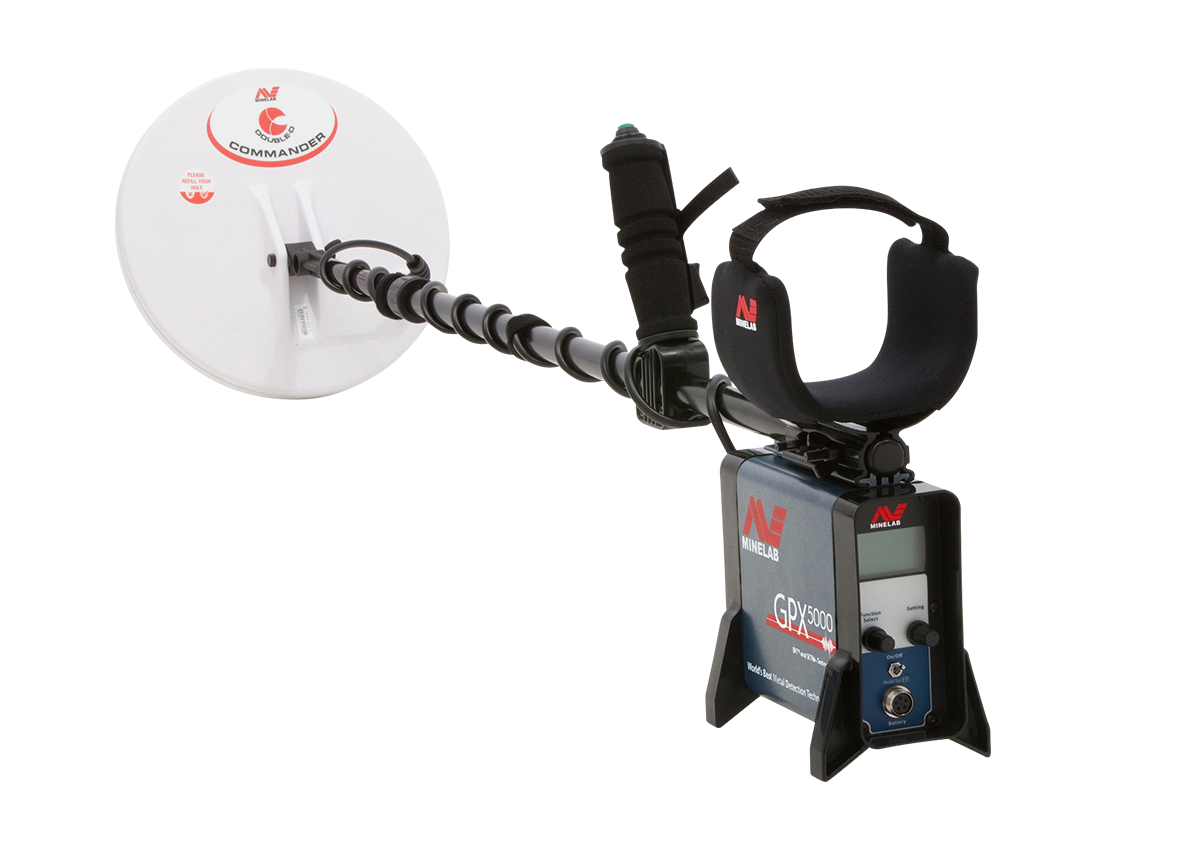The first thing new comers to detecting will learn is, detectors are all about noise; they can seem like a talkative child who rambles on incessantly with the poor listener not being able to make head or tail of what it is they are trying to say. Noise or the lack of it is one of the main reasons why Minelab have what is considered to be the “World’s Best Metal Detection Technologies”. In my first blog as a guest writer for Treasure Talk I want to talk about noise and why I feel the lack of it makes the GPX 5000 so unique.
Stability in a metal detector is important for two reasons, one is user fatigue (spurious noises are frustrating and very tiring especially over long periods of time) and the other is, any sort of audio response that is not generated by a good target has the potential to mask or hide a gold nugget in the ground.
During testing I always try to re-visit areas that have been productive in the past to get a gauge on the overall performance compared to previous models, there is no better indication of an improvement in design than finding nuggets in an area you’re intimately familiar with. The first and most obvious thing I noticed with the GPX 5000 is it runs noticeably quieter than the GPX 4500 in all timings not just the new Fine Gold timings (Smooth, Enhance and Fine Gold are all in the same family of timings that effectively ignore mineralisation with Monoloop coils). In one instance I managed to find an ounce of gold missed on previous passes with the older detector. As I became more familiar with the GPX 5000 I started to ask myself the question “why are all these nuggets still in the ground?”

In the end I came to the conclusion that it is noise or the lack of it that allowed me to find those nuggets, the GPX 5000 was running so quiet and stable that I was able to easily identify signals missed on previous passes with other units.
The GPX series of detectors offer a range of options for the operator, those options allow the end user to make choices on the way the detector behaves. Learning to optimise the detector so it has maximum performance and minimum noise in a given environment is what operators should be aiming for. Minelab cannot make those decisions for you because each location is unique to you, but they can provide options in the detector to give you the tools to maximise your chances of success, discovering what those options do is part of the learning curve.
These are the settings I used with a Monoloop coil in quiet ground. If the ground is mineralised (noisy) then all you have to do is change the timings switch to either Enhance or Fine Gold and the Tracking switch to Fixed using the Quick Trak button to re-ground balance, you can also elevate the Gain if conditions allow.
Front Panel:
Ground Balance: Tracking
Coil/RX: DD
Soil/Timings: Normal
Search Mode: General
Menu:
Backlight: Off (saves a smidgen on battery power)
Battery Test: Battery charged every day
Volume Limit: 10 (with speaker use it is best to go lower than FP to help prevent oscillation)
GB Type: General
Special: Not relevant as Normal is selected on Front Panel (I leave mine in Fine Gold)
Manual Tune: 98
General:
Motion: Slow
RX Gain: 11(FP) to 13 depending on conditions (I rarely go higher than 14, more gain can equal more noise)
Audio: Deep
Audio Tone: 63
Stabilizer: 8
Signal: 19 (higher Tone is better suited to higher Signal settings)
Target Volume: 8 with external booster and speaker, 12 using inbuilt battery booster and speaker
Response: Normal
Tracking: Medium
Iron Reject: Off (discrimination doesn’t work with Monoloop coils)
Jonathan Porter





















Comments
If conditions allow you can use the Gain up to 10 or even 11 without too many issues so long as you keep the Motion settings near Slow or even Very Slow. Usually I would prefer to back off the Gain first before slowing down the Motion though.
Iv spent most my life working in the bush and id love to take up Gold prospecting as a hobby but was wondering how viable could it be and if it can be more than a hobby. Its my dream to work in the bush and be my own boss some day. Is it a gamble or with the right equipment and training could u make it a career
If after these comments you still want to take a crack at it then I suggest before you do so become as proficient with your detector as possible. As an example during a detecting season (which these days generally lasts from 3 to 6 months during the winter months) I'll only have a handful of goldless days, assuming of course I am in country where a few bits can be had on occasion.
So in the mean time before quitting your job and heading for the wide blue yonder get yourself up to scratch by regularly finding gold in close to home areas during weekends/holidays etc, to give yourself the best chance of success. This also includes researching prospective areas for future lengthy trips away, attending training days and seminars and perhaps joining a club or group of people who don't mind showing you the ropes.
It can be done but I always recommend caution, with gold sitting on record highs at the moment (over AU$44.00 per gram at time of writing) you don't need a lot every day to make ends meet, but starting out from scratch would be a lot to ask unless you had something behind you and did not need to find gold straight away.
A lot of semi-retired and fully retired Australians (Grey Nomads as they are becoming fondly known as now) are supplementing their incomes with their Minelab metal detectors, I don't see why you shouldn't be able to too once you become more experienced with your detector and get to know some of the haunts.
Are there any "Grey Nomads" (or not so grey like myself:-)) lurking on this blog who are supplementing their incomes with the gold they find with their Minelabs? It would be interesting to read of your experiences.
Cheers.
It would be nice to have a suggested Gain level indicator for the GPX 5000 similar to the E-Trac which measures the ground conditions in real time making suggestions for the Gain levels as you go, this would give operators a clearer idea of where to set the Gain rather than taking a guess and potentially ramping it up too much.